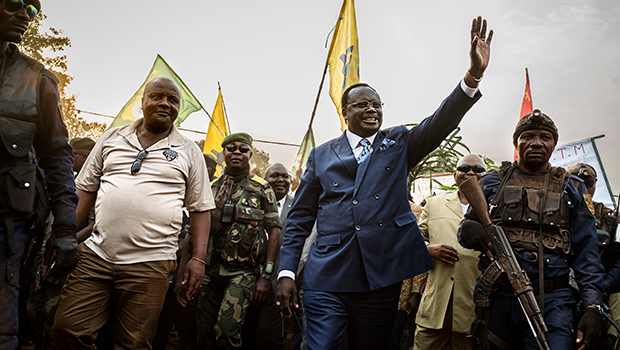On the eve of 2018, on Sunday the 30th of December, the elections for the presidency and the National Assembly of the DRC finally took place. These hard-won elections were the result of heavy pressure from the Catholic church in Congo, political activists and the international community on the current president Joseph Kabila who has stayed in power over the last 18 years. The election results are due after the 6th of January. But the question is to what extent these polls will contribute to the long-awaited change in Congo.
Hard-won elections
A vast majority of the Congolese population is longing for change, in any shape or form. Almost sixty years of independence has brought the average Congolese very little, if any, prosperity and security. In a country where the national credo states “Fend for Yourself” (often referred to as the unofficial article 15 of the Constitution) most of the Congolese just live one day at the time, desperately seeking to satisfy the basic needs of their beloved ones. Democratic elections seemed the most feasible way to press for this long overdue change. The Catholic Church reached an agreement with the government on the issue in December 2016, but the regime did not live up to it. When public protests heated up in the major cities of the DRC and the US threatened to tighten financial sanctions against Kabila, the President finally gave in and set the date of the elections on the 23th of December.
Kabila sets the stage
Although the setting of the elections can be seen as an impressive victory of those in favour of democracy, it was clear from the beginning that Kabila dictated the rules of the process. He immediately put forward his ‘dauphin’ Emmanuel Shadary, a long time loyalist without a constituency of his own. And shortly after, Kabila declared that he might run for President again in 2023. The regime banned three important candidates from the elections and the two remaining opposition candidates were hindered during their campaigns. Moreover, the use of the controversial voting machines was introduced, seven thousand of which were destroyed by an unexplained fire. Consequently, the elections were postponed for another week. In three areas, important opposition strongholds, the elections were postponed until further notice, arguing that the Ebola outbreak and the armed conflict made the process impossible. The opposition could do little more than accept these decisions under protest.
Election day without prying eyes
Organising elections with 43 million registered voters in a country the size of Western Europe with an imploded infrastructure is a complicated matter. Nevertheless, Kabila categorically rejected logistical support of the UN or any other international involvement. International observers were not allowed, except for two hundred observers of the Southern African Development Community (SADC). And foreign reporters and NGOs were hardly granted visa during the elections period. The monitoring of the elections was done mainly by the forty thousand civilians that the Catholic Church mobilized on its own account. These observers reported various irregularities and flaws during the chaotic election day and a lack of transparency regarding the voting results. Nevertheless, international actors such as SADC and the African Union, qualified the process as ‘reasonably well managed’. For China, Europe and regional states stability is crucial, not in the least since the DRC is stocked with natural resources on which their economy depends. The position of the different actors to see the glass as half-empty or as half-full, sheds a light on their possible degree of willingness to act after the results will be made public.
The deep silence
Historically, the spectre of the sitting regimes in Congo has been the potential of the popular anger that might defy their power. Especially after elections, their discontent might set a spark to a powder keg. Daily after the elections, Kabila took charge again, and cut off the population of relevant information to minimize the risk of social protest. Nevertheless, the National Episcopal Conference of Congo (Cenco) managed to notify the world that it was evident that the elections had a clear winner, albeit without mentioning a specific name. The question now is, whether the Cenco will be backed by the international community might the official election results not match the monitoring results of the observers of the church.
Even if one of the opposition candidates will become the next President of the DRC, Kabila will cast his shadow over the next government. He will remain leader of the political party PPRD, will maintain his influence among officials, military and businesses and will keep a seat in Parliament. In 2019, we will have to wait and see how strong his power base in reality is, and how effective the opposing forces will turn out to be.




